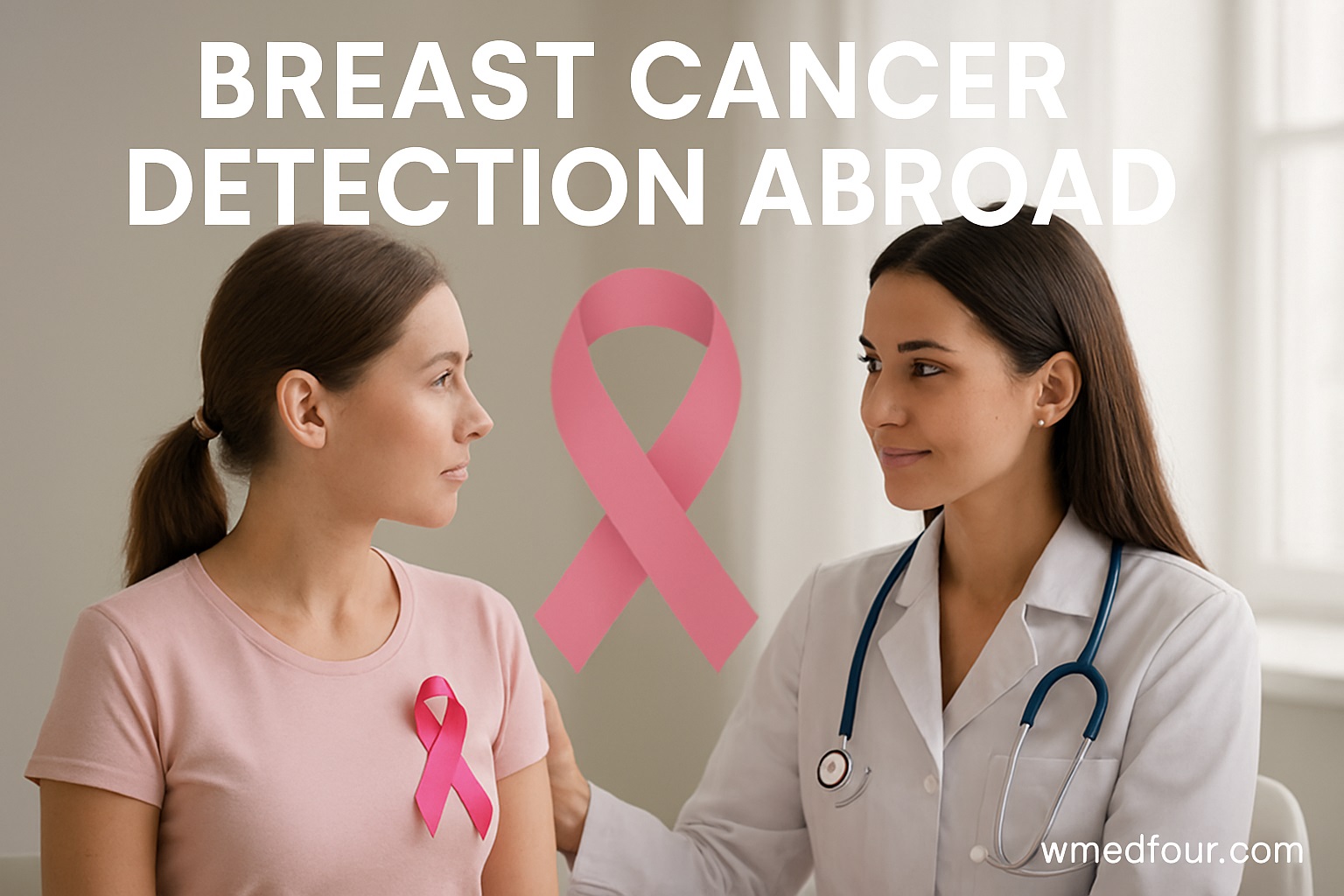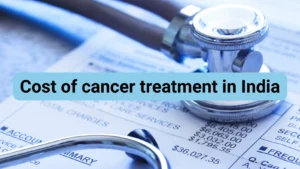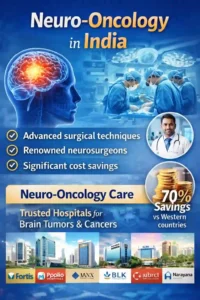Breast Cancer Detection Abroad: A Global Guide to Advanced Screening
Navigating Global Healthcare for Early and Accurate Diagnosis
As healthcare systems face increasing pressure, many people are turning to global solutions for their medical needs. Therefore, understanding the options for Breast Cancer Detection Abroad has become more relevant than ever. This guide provides a comprehensive overview of how international medical travel can offer a faster, more affordable, and technologically advanced path to early diagnosis. We will explore the benefits, screening methods, and essential steps for planning your journey.
In many cases, long wait times for routine screenings or specialized tests can cause significant anxiety. Furthermore, some countries may not have access to the latest diagnostic technologies. Consequently, traveling to a medical hub can provide immediate access to cutting-edge tools and a team of world-class specialists.
Why Choose International Medical Travel for Screening?
Choosing to undergo breast cancer screening abroad offers several compelling advantages. First and foremost, you can significantly reduce the wait time for appointments and diagnostic results. In many countries, you might face delays of several weeks or even months for a mammogram or MRI, but international clinics often provide immediate scheduling.
Moreover, you can gain access to state-of-the-art technology that might not be available at home. For instance, advanced imaging tools like 3D mammography (tomosynthesis) and high-resolution breast ultrasounds are standard practice in top global clinics. Additionally, the cost of these services can be surprisingly affordable, making it a viable option even when you include travel expenses. These factors, combined with world-class medical expertise, make Breast Cancer Detection Abroad an attractive choice.
Advanced Diagnostic Technologies Available Today
The field of breast imaging is constantly evolving, with new technologies offering higher accuracy and more detailed results. The following are some of the most common and effective screening tools you will find in leading international clinics.
Digital Mammography (2D and 3D): While 2D mammograms are the standard, 3D mammography is increasingly common and more accurate. Tomosynthesis, as it is also called, takes multiple images from various angles. A computer then creates a precise 3D rendering. Consequently, this allows doctors to see through dense breast tissue and locate small tumors more easily.
Breast Ultrasound: Often used alongside a mammogram, a breast ultrasound uses sound waves to produce images of the breast’s interior. As a matter of fact, it is particularly useful for distinguishing between a solid tumor and a fluid-filled cyst. It is a non-invasive procedure that provides real-time images and is an excellent tool for a thorough examination.
Breast MRI: For women at a high risk of developing breast cancer, or those with very dense breasts, a breast MRI can be an invaluable tool. It uses magnetic fields and radio waves to create highly detailed images. A breast MRI can detect tumors that might be missed by a mammogram or ultrasound.
Planning Your Medical Journey for Screening
To have a smooth and stress-free trip for Breast Cancer Detection Abroad, careful planning is essential. A medical travel agency like wmedtour.com can streamline the entire process, but here are the basic steps you should consider.
First, gather your existing medical records, including any previous mammograms or reports. Sharing this information will give the medical team abroad a complete picture of your health history. Then, decide on a location and find a reputable clinic. Look for international accreditations like JCI (Joint Commission International) as a sign of high-quality care. A doctor’s qualifications and patient reviews are also important.
Once you have chosen a clinic, you can schedule your appointment. For instance, wmedtour.com can help you with this, and they will also arrange for flights and accommodations. Many clinics have dedicated patient coordinators who can assist with language barriers and logistical details.
Comparison of Breast Cancer Screening Methods
Choosing the right screening method can depend on your age, risk factors, and breast density. Here is a table comparing the most common diagnostic tools to help you understand your options.
| Method | How It Works | Best For | Advantages |
|---|---|---|---|
| 2D Mammogram | X-rays create a flat image of the breast. | Routine annual screening for average-risk women. | Widely available, quick, and affordable. |
| 3D Mammogram | Creates a layered, 3D image of breast tissue. | Women with dense breasts or a higher risk. | More accurate, fewer false positives, detects smaller tumors. |
| Breast Ultrasound | Uses sound waves to distinguish between solid tumors and cysts. | As a follow-up to an abnormal mammogram. | Safe, non-invasive, no radiation, and excellent for dense breasts. |
| Breast MRI | Uses magnetic fields for highly detailed breast images. | High-risk women and to evaluate for implant rupture. | Provides the most detailed images, can find tumors missed by other methods. |
| Breast Biopsy | Removes a small tissue sample for lab analysis. | Confirming a suspicious finding from other scans. | The only way to definitively diagnose cancer. |
The Importance of Timely and Accurate Screening
Early detection is your most powerful tool in the fight against breast cancer. A timely diagnosis can lead to simpler treatments and a significantly higher chance of a full recovery. Conversely, delays in screening can allow a cancer to grow and spread, which necessitates more aggressive and complex treatments. Therefore, being proactive with your breast health is an act of empowerment.
Furthermore, it is important to remember that screening is not a one-time event but a routine practice. Finding a reliable system, whether at home or through **Breast Cancer Detection Abroad**, will give you peace of mind and help you stay on top of your health. Your well-being should always be a top priority.
Choosing an Experienced Team
The quality of your medical team directly impacts your outcome. In fact, top-tier international clinics employ specialists who focus exclusively on breast health and oncology. These teams often include radiologists, surgeons, and oncologists who work together to provide a comprehensive diagnosis.
Consequently, their collective expertise ensures that you receive the most accurate diagnosis and are presented with the best possible treatment options if a malignancy is found. For this reason, we highly recommend that you visit wmedtour.com to find and compare accredited hospitals and doctors who specialize in breast cancer screening.
Your Health, Your Choice
Taking charge of your health means exploring all available options. Whether it’s due to a lack of access or a desire for the best technology, Breast Cancer Detection Abroad offers a valid and often superior alternative. You can confidently take the first step toward a healthier future by planning a medical trip.
For more information on the latest breast cancer treatment methods, read our articles on breast cancer treatment in Turkey and cancer treatment in Turkey. You can also learn about other medical tourism options at orthopedic treatment in Dubai and plastic surgery options in Dubai.
Additionally, you can read more about breast cancer and its treatments from these credible sources: WHO Fact Sheet, American Cancer Society, Breastcancer.org, NCBI study on 3D Mammography, and Mayo Clinic.
Frequently Asked Questions
For your convenience, here are some of the most common questions about Breast Cancer Detection Abroad.
Are you ready to explore your options for safe and reliable Breast Cancer Detection Abroad?




